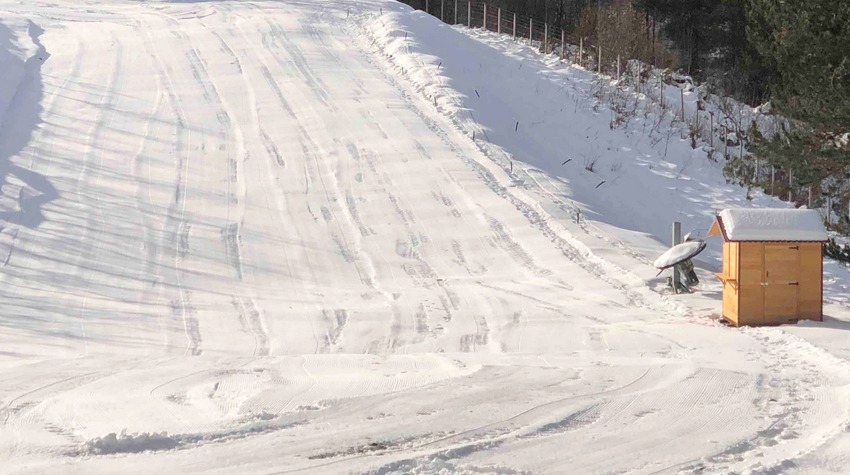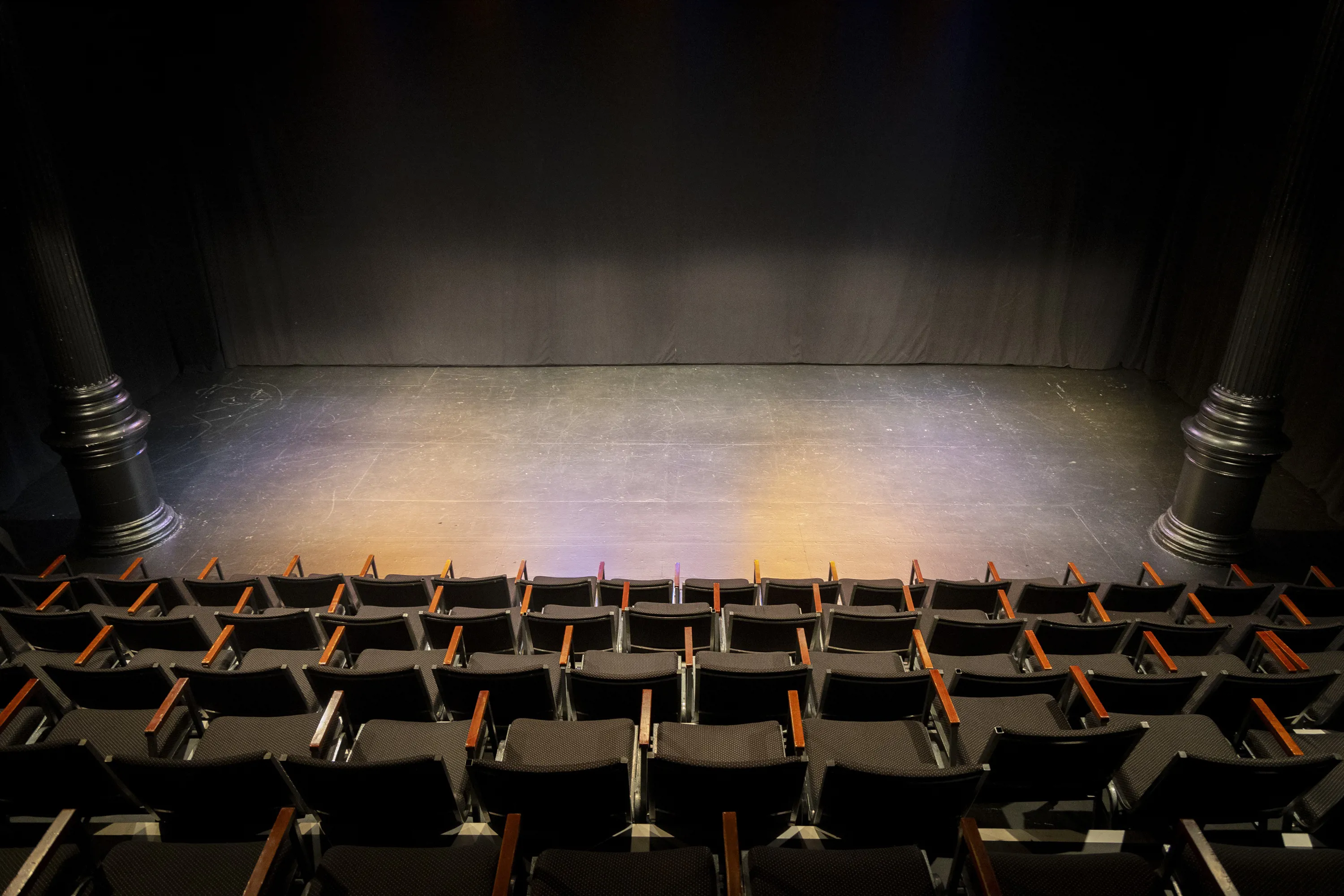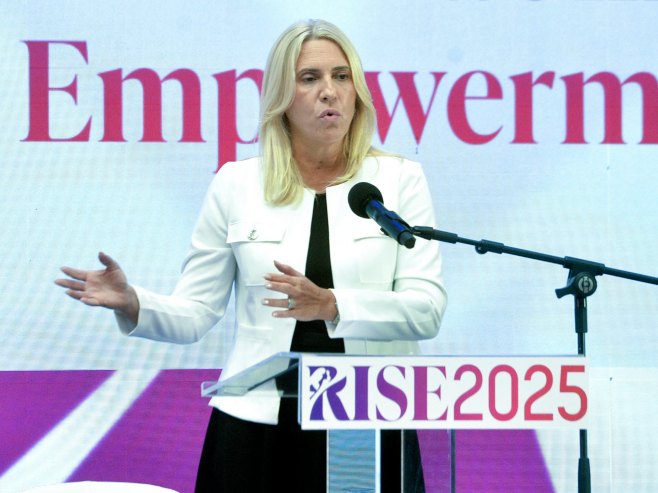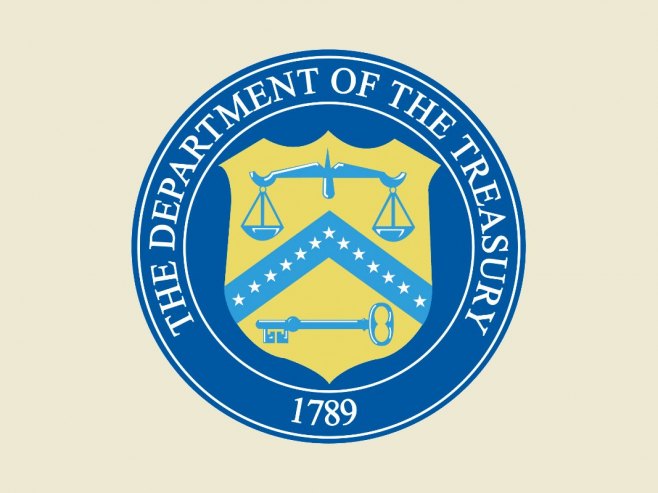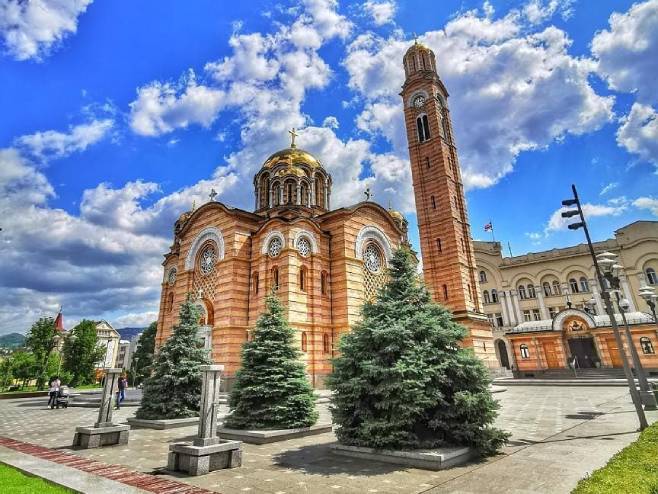Just two weeks before the start of this ABA League season, Igokea’s forward-center Mihailo Bošković left the team to join the American university Brigham Young (BYU).
The young power forward, who spent the last two seasons with the club from Aleksandrovac, took a major step in his career, and judging by his performances in NCAA college basketball, it was a move well worth making. In an interview with Glas Srpske, Bošković discussed how he made this transition despite having a contract with Igokea, where he was expected to play a significant role, and how he has adjusted to life in the United States.
GLAS: How did the move to the U.S. come about?
BOŠKOVIĆ: I completed preseason with Igokea and had a valid contract. I wasn’t even thinking about leaving. But after we won the BiH League, BYU coach Kevin Young reached out to my agent. He had seen some of my game footage and offered me a deal. I initially thought I couldn’t play due to age restrictions, but they found a “wormhole” in the rules and made it work. A few years ago, while playing for Dynamic, I also considered going to the U.S. and took the necessary college and English exams, as well as submitted my transcripts. I even enrolled in a private university while playing in Belgrade. That helped, and when the BYU coach contacted me, he said I had all the qualifications. I was registered as a junior with another year of eligibility. Igokea’s sporting director Vuk Radivojević helped a lot, and the club supported the transfer—BYU even paid the buyout. Everything fell into place, so I took the chance when it opened.
GLAS: What are you studying?
BOŠKOVIĆ: I started with a general major since I wasn’t sure what I wanted, but now I’m studying economics. I should finish everything in two years—we’ll see how it goes.
GLAS: Are there any other players from our region in the NCAA?
BOŠKOVIĆ: I knew some guys before I left. My former teammate from Dynamic, Jovan Ristić, plays at Loyola Marymount. There are also the Ivišić brothers, Zvonimir and Tomislav, who I asked about the league. I’ve also seen a few Serbian players or U.S.-born guys with Serbian roots on other teams.
GLAS: Do you know Viktor Mikić, who won the NCAA title with Florida?
BOŠKOVIĆ: I don’t know him personally. I know he was part of the championship team, but that’s about it.
GLAS: What’s it like playing college basketball firsthand?
BOŠKOVIĆ: I arrived a bit late, so I had to catch up on physical preparation and adapt to the team’s system. I came in September, so I missed summer workouts. But basketball wasn’t the issue—adjusting to the culture and routine was. Players here are obsessed with the game. Even if we have class at 8 AM, they’re in the gym at 7 for individual work, stay after practice, and lift weights. I’ve seen a level of dedication I hadn’t experienced before. All the resources are available—tutors, support systems. Classes are organized around sports schedules. Studying isn’t too hard, but the season is packed with little free time. It gets easier once it ends.
GLAS: Are you happy with your playing time?
BOŠKOVIĆ: At first, I didn’t know what to expect. I was out of rhythm after the Igokea season and needed time. I started getting around 20 minutes per game, but midway through the season that dropped. I understood it was due to rotation, so I kept working. Then we started losing games, and the coach brought me back in. I scored eight points in about ten minutes, then hit the game-winner in the next one. That gave me momentum. During March Madness, I had 11 points against both Utah and Iowa. It ended a bit early, but I’m satisfied with my performance and expect a bigger role next season. I’m definitely staying with the team.
GLAS: What was it like playing in March Madness?
BOŠKOVIĆ: People in Serbia and Republika Srpska don’t really grasp how huge it is. You hear about it, but until you’re in it, you can’t imagine. It’s like a religion here. Once March hits, everything is about basketball. No one even watches the NBA—it’s all about college hoops. It’s surreal to be part of it, with people talking about you and all the media buzz. The arenas are massive, and the TV contracts are huge. The first two games we played were in Denver, which was close, and the next was in New Jersey. That one felt a bit different because we didn’t have as many fans there.
GLAS: Are the arenas really full like in the movies?
BOŠKOVIĆ: They are. The Final Four is played in a football stadium repurposed for basketball. The level of fan engagement is almost impossible to describe.
GLAS: How does NCAA compare to the ABA League?
BOŠKOVIĆ: NCAA is top-level. We play in the Big 12, one of the three strongest conferences along with Big Ten and ACC. The teams are very strong. Player quality is similar to the lower ABA League teams, but NCAA players are more athletic, and some coaches are better too. They’re not quite at the level of Crvena Zvezda, Partizan, Budućnost, or Cedevita Olimpija, but it’s a very demanding league.
GLAS: What are your future plans?
BOŠKOVIĆ: That depends on next season. I need to stay in top physical and athletic shape. Everyone dreams of the NBA—I do too. Maybe a two-way contract would be a good step. But I’m not focused only on that. I’d also love to play in the EuroLeague, which is arguably more interesting than the NBA. The next stop will depend on my progress.
GLAS: Do you plan to declare for the NBA Draft?
BOŠKOVIĆ: I’m not sure. Last year was technically my draft year, but when you enter college, it resets. I don’t think I’d be drafted right now. I’d rather go to the G League and try for a two-way contract—that would mean a lot.
GLAS: Is there any promise of returning to Igokea?
BOŠKOVIĆ: There’s no promise, but there is a possibility. Igokea was my first step after Dynamic, and it gave me my first taste of senior and professional basketball. That experience will stay with me forever. ABA League has produced many players, and playing in Laktaši and Banja Luka was great. I wouldn’t rule out a return. I had a great relationship with the coaching staff and Vuk Radivojević—they helped me a lot. I won’t make any promises, but I’d consider going back.
GLAS: BYU is known for having had Krešimir Ćosić. Do they honor his legacy?
BOŠKOVIĆ: Yes, there’s a tribute to him. His jersey with number 44 hangs in the rafters, and there’s a banner in his honor. He’s a legend at BYU. When people ask where I’m from, I just say I’m from “his part of the world.” Older folks really admire him—young people less so.
Luka Dončić trade
GLAS: How was Luka Dončić’s trade to the Lakers received in the U.S.?
BOŠKOVIĆ: We were on a flight returning from a game and had no internet. Suddenly, a teammate connects and tells us Dončić was traded to the Lakers. We thought it was an April Fools’ joke—it made no sense. Once we landed, we saw it was true. Everyone was shocked. No one expected it. I think we’re all still processing it.
City of Provo
GLAS: What’s life like in Provo, Utah, where BYU is located?
BOŠKOVIĆ: I don’t live on campus—I rent an apartment in the city, not far from the university. I haven’t explored much, but it seems like a quiet town without much going on. But it has everything I need. Salt Lake City is about 70 kilometers away and is completely different—much larger and livelier.
Biography
Mihailo Bošković was born on June 30, 2002, in Užice. He began his basketball career with local club Play Off, then moved to Sloboda Užice for two seasons. He later joined Dynamic Belgrade, also for two seasons, before signing with Igokea on April 17, 2023. Standing at 209 cm, he plays as a forward or power forward. He was a member of Serbia’s U20 national team and was named MVP of the 2022 Division B European Championship in Tbilisi, where he averaged 12.3 points, 6.6 rebounds, 2.1 assists, and 1 block across seven games. In 2023, he declared for the NBA Draft but withdrew. He had a pre-draft workout with the Sacramento Kings.
Source: Glas Srpske
